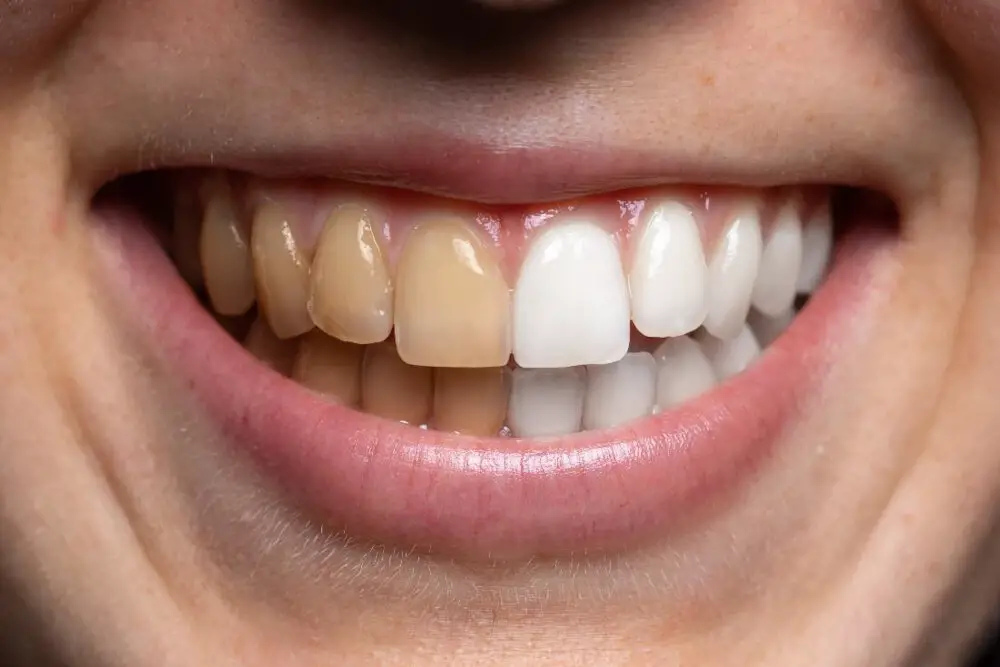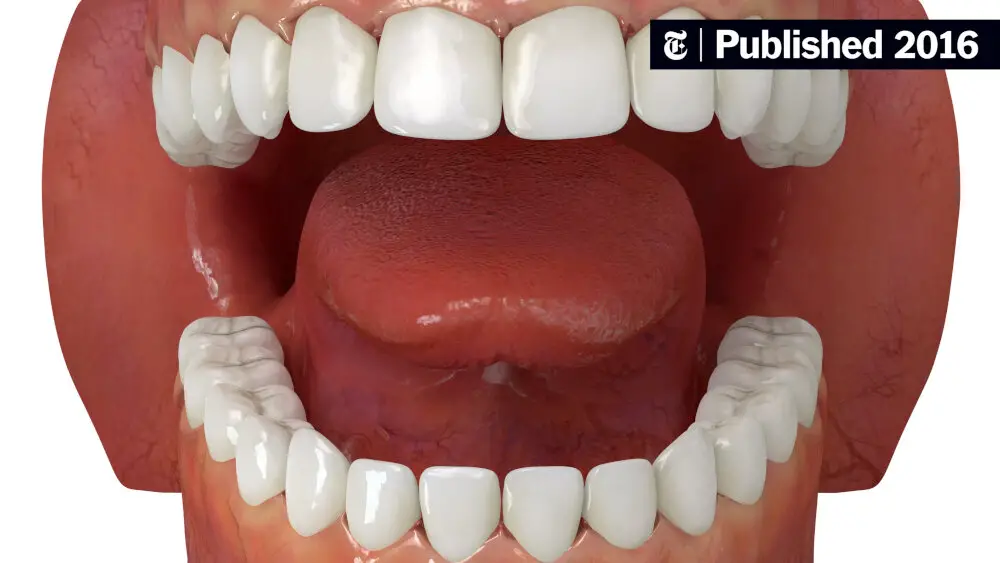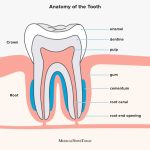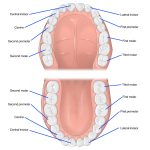Why Teeth Hurt When Sick: Exploring the Connection Between Illness and Tooth Pain

Teeth are an essential component of our body, and they play a crucial role in our overall wellbeing. However, it’s not uncommon to experience tooth pain when you’re sick. The connection between illness and tooth pain is a subject that has puzzled experts for years. People often wonder why they experience tooth pain when they have a cold or flu. This topic is of particular interest to researchers and dentists as they seek to understand the relationship between illness and tooth pain. There are several reasons why teeth hurt when sick. For example, sinus infections can cause tooth pain, as the sinuses are located close to the upper teeth. Additionally, certain illnesses such as diabetes can increase the risk of tooth decay and gum disease, leading to tooth pain. Understanding the connection between illness and tooth pain is crucial for maintaining good oral health and overall wellbeing. In this article, we will explore the various factors that contribute to tooth pain during sickness and provide tips on how to alleviate the discomfort.
Tooth pain is a common dental problem that can be experienced in different forms and intensities. It is typically characterized by a sharp, throbbing, or dull ache in or around a tooth, and can be caused by various factors, such as tooth decay, gum disease, cracked or broken teeth, infections, or nerve damage. Tooth pain can also be associated with other illnesses and conditions, such as sinus infections, migraines, or heart disease. Regardless of its cause, tooth pain can be a debilitating and distressing experience that affects one’s ability to eat, speak, and perform daily activities. Therefore, seeking prompt dental care is essential to alleviate the pain and prevent further oral health complications.
Tooth pain is not always caused by dental problems, as it can also be linked to various illnesses. The connection between illness and tooth pain is often due to the spreading of bacteria or viruses from other parts of the body to the teeth or gums. Certain illnesses, such as sinus infections, ear infections, and even the common cold, can result in tooth pain as a secondary symptom. In other cases, medications used to treat illnesses can also cause tooth pain as a side effect. It is important to address tooth pain, even if it is believed to be caused by an illness, as it can lead to further complications and discomfort.
Types of Illnesses That Can Cause Tooth Pain

Tooth pain can be a symptom of various illnesses, some of which are not directly related to dental problems. Sinus infections, for instance, can cause toothaches due to the inflammation and pressure that build up in the sinuses and put pressure on the roots of the upper molars. This type of pain is often described as a dull ache that radiates from the upper teeth to the cheeks and forehead. Similarly, ear infections can lead to tooth pain, particularly in the lower molars, due to the proximity of the ear and jaw nerves. In some cases, the pain may be accompanied by swelling and redness in the affected area, fever, and difficulty chewing or opening the mouth. Other types of illnesses that can cause tooth pain include gastroesophageal reflux disease (GERD), which can cause acid reflux and damage the tooth enamel, leading to sensitivity and pain. Similarly, autoimmune diseases such as lupus and rheumatoid arthritis can affect the connective tissues and cause inflammation in the jaw joint, leading to tooth pain and difficulty opening the mouth. Finally, some conditions such as diabetes and cancer can weaken the immune system and lead to oral infections and abscesses, which can cause severe tooth pain and swelling. It is important to seek medical attention if you experience tooth pain, especially if it is accompanied by other symptoms, to determine the underlying cause and receive appropriate treatment.
Sinus infections are a common type of upper respiratory infection that can cause tooth pain. The sinuses are hollow spaces located in the bones around the nose and eyes. When these spaces become inflamed due to infection, they can put pressure on the surrounding teeth, leading to discomfort and pain. In addition to tooth pain, sinus infections can cause a range of symptoms, including congestion, headache, facial pressure, and fever. Treatment for sinus infections typically involves antibiotics to clear up the infection, as well as decongestants and pain relievers to manage symptoms. It’s important to seek medical attention if you suspect you have a sinus infection, as untreated infections can lead to complications.
Ear infections, also known as otitis media, refer to the inflammation and infection of the middle ear. They are typically caused by bacteria and viruses and can be quite painful, especially in children. Symptoms of ear infections include ear pain, fever, headache, dizziness, and a feeling of fullness or pressure in the ear. While ear infections are not directly related to tooth pain, they can be a sign of an underlying health issue that may also be causing dental discomfort. It is important to seek medical attention for ear infections to prevent complications and address any potential dental concerns.
Cold and flu are viral respiratory infections that commonly affect people during the winter season. The symptoms of cold and flu can range from mild to severe, including cough, sore throat, runny nose, fever, and body aches. These infections can also cause sinus congestion, which can lead to pressure and pain in the teeth and jaw. Additionally, the body’s immune response to the virus can cause inflammation and swelling, which can further exacerbate tooth pain. It is important to practice good oral hygiene and stay hydrated during illness to minimize the risk of tooth pain and maintain overall health.
Gastrointestinal problems can often be a contributing factor to tooth pain. When the digestive system is not functioning properly, it can lead to acid reflux, which can cause erosion of tooth enamel over time. Additionally, stomach viruses and other illnesses can cause vomiting, which can also lead to tooth decay and sensitivity. It is important to maintain good oral hygiene and visit the dentist regularly to catch any potential issues early on. Proper nutrition and hydration can also help support a healthy digestive system and prevent gastrointestinal issues that may impact dental health.
Autoimmune diseases occur when the immune system mistakenly attacks healthy cells and tissues in the body. This can lead to a range of symptoms and complications, including inflammation, pain, and organ damage. Some autoimmune diseases are relatively common, such as rheumatoid arthritis and lupus, while others are rare and less well-known. In many cases, the underlying causes of autoimmune diseases are not fully understood, but genetics, environmental factors, and infections may all play a role. Treatment for autoimmune diseases typically involves a combination of medications, lifestyle changes, and supportive therapies to help manage symptoms and prevent complications.
How Illnesses Cause Tooth Pain

Tooth pain is one of the most annoying and painful experiences that one can encounter. It can be caused by a variety of factors, including illnesses. Illnesses can cause tooth pain in various ways. One of the most common ways is through sinus infections. When the sinuses become inflamed, pressure can build up, causing pain in the teeth. This pain is usually felt in the upper teeth, and it can be accompanied by other symptoms such as congestion, headaches, and a sore throat. The pain can be managed with over-the-counter painkillers and decongestants. However, if the pain persists, it is advisable to see a dentist or a doctor. Another way that illnesses can cause tooth pain is by affecting the nerves in the jaw. Some illnesses, such as shingles and trigeminal neuralgia, can cause nerve damage, leading to tooth pain. In these cases, the pain is usually severe and can be accompanied by other symptoms such as numbness and tingling. Treatment for nerve-related tooth pain may include medication, nerve blocks, or surgery. It is essential to seek medical attention if you suspect that your tooth pain is caused by nerve damage, as untreated nerve damage can lead to long-term complications.
Inflammation and swelling are common symptoms associated with tooth pain during illness. Inflammation is the body’s natural response to infection or injury, and it is characterized by redness, warmth, pain, and swelling. When a person is sick, their immune system is activated, and white blood cells are released to fight off the infection. This immune response can cause inflammation in various parts of the body, including the gums and teeth. Swelling may occur as a result of the increased blood flow to the affected area, and it can put pressure on the nerves in the teeth, causing pain. Additionally, inflammation can lead to the breakdown of tissues, which can further exacerbate tooth pain. Therefore, managing inflammation and swelling is an important aspect of treating tooth pain during illness.
Changes in blood flow can play a significant role in the connection between illness and tooth pain. During an illness, the body’s immune response kicks into high gear, causing blood vessels to dilate and increasing blood flow to the affected area. This increased blood flow can lead to inflammation and swelling in the sinuses and nasal passages, which can put pressure on the teeth and cause discomfort. Additionally, changes in blood flow can affect the nerves in the teeth, causing them to become more sensitive and resulting in pain and discomfort. Therefore, it is important to take care of overall health to prevent or alleviate tooth pain during illness.
Nerve irritation is a common cause of tooth pain during illness. When the body is fighting off an infection or illness, it can cause inflammation in the nerves that run through the face and head, including those that connect to the teeth. This inflammation can lead to a range of symptoms, from mild discomfort to intense pain. Additionally, certain illnesses can cause nerve damage or make existing nerve conditions worse, which can also contribute to tooth pain. Addressing the underlying illness is key to resolving the nerve irritation and alleviating tooth pain.
How to Relieve Tooth Pain Caused by Illness

Tooth pain caused by illness can be excruciating and can make it difficult to eat, sleep, or carry out daily activities. However, there are several steps you can take to relieve the pain and discomfort. The first step is to see a dentist or doctor to rule out any serious dental or medical conditions. Once the underlying cause of the tooth pain has been identified and treated, the pain may subside on its own. If the pain persists, over-the-counter pain relievers such as ibuprofen or acetaminophen can help provide temporary relief. You can also try applying a warm or cold compress to the affected area to reduce inflammation and numb the pain. Another effective way to relieve tooth pain caused by illness is to practice good oral hygiene. This includes brushing your teeth twice a day, flossing daily, and using an antiseptic mouthwash to kill bacteria. If you have a sinus infection or cold, you can also try using a saline nasal spray to help clear your sinuses and reduce pressure on your teeth. Finally, it’s important to maintain a healthy diet and avoid foods and drinks that can irritate your teeth, such as sugary or acidic foods. By following these simple steps, you can alleviate tooth pain caused by illness and prevent future dental problems.
Over-the-counter pain relievers, such as ibuprofen and acetaminophen, can provide effective relief for tooth pain associated with illness. These medications work by reducing inflammation, which can alleviate pain and discomfort. However, it is important to follow the recommended dosage and not exceed the maximum daily limit. Additionally, individuals with certain medical conditions, such as liver or kidney disease, should consult with a healthcare provider before taking these medications. While over-the-counter pain relievers can provide temporary relief, it is important to identify and address the underlying cause of tooth pain, which may require a visit to the dentist.
Saltwater rinses can be an effective home remedy for alleviating tooth pain caused by illness. The salt in the rinse helps to reduce inflammation and kill bacteria in the mouth, making it a natural disinfectant. This is particularly beneficial when suffering from a cold or flu, which can cause a build-up of mucus in the sinuses and throat that can aggravate tooth pain. By using a saltwater rinse, you can soothe the affected area and promote healing. Additionally, saltwater rinses are easy to make at home and cost-effective compared to other dental treatments. However, it is important to note that saltwater rinses are not a cure for underlying dental issues and should not replace professional dental care.
When experiencing tooth pain during an illness, one effective way to alleviate the discomfort is through the use of cold compresses. Applying a cold compress to the affected area can provide temporary relief by reducing inflammation and numbing the nerves. Cold compresses can be made by wrapping ice packs or frozen vegetables in a towel and placing it on the cheek or jaw near the affected tooth. It is important to limit the use of cold compresses to 15-20 minutes at a time to avoid damaging the skin or causing further discomfort. Combining cold compresses with other remedies such as over-the-counter pain medications or warm saltwater rinses can provide optimal relief for tooth pain during illness.
Maintaining good oral hygiene is crucial not only for avoiding tooth pain but also for overall health. Brushing and flossing twice a day removes harmful bacteria and food particles that can cause tooth decay and gum disease. In addition, regular dental check-ups and cleanings are important to detect and treat any dental issues early on. A balanced diet with limited sugar and processed foods can also keep teeth healthy. Furthermore, avoiding tobacco products and limiting alcohol consumption can reduce the risk of oral cancer and other dental problems. By taking care of your oral health, you can not only prevent tooth pain but also improve your overall well-being.
If you are experiencing tooth pain while sick, it is crucial to seek medical treatment for any underlying illness. Tooth pain is often a signal of a more significant health problem, and ignoring it can lead to more severe complications. Your dentist or doctor can determine the cause of your tooth pain and provide appropriate treatment, which may include antibiotics or pain medication. In addition, treating the underlying illness can often alleviate the tooth pain. Delaying treatment can lead to more severe symptoms, such as abscesses or even tooth loss. Therefore, it is essential to prioritize your health and seek medical attention promptly to address any tooth pain you may be experiencing.
When to See a Dentist

It is crucial to know when to see a dentist when dealing with tooth pain, especially if it is accompanied by an illness. If the pain is severe or persistent, it may indicate a more serious dental issue that requires professional attention. Toothaches can be caused by a variety of factors, including decay, infection, or injury to the tooth, and underlying medical conditions such as sinusitis or ear infections. In some cases, tooth pain can also be a symptom of more severe health problems such as cancer or autoimmune diseases. Therefore, it is essential to schedule an appointment with your dentist if you experience any tooth pain, particularly if it is accompanied by other symptoms. Additionally, if you are experiencing tooth pain along with other symptoms such as fever, chills, or difficulty swallowing, it may indicate a more severe underlying condition that requires immediate medical attention. In such cases, seeking the help of a dentist as soon as possible can help diagnose the root cause of the pain and prevent further complications. Furthermore, regular dental check-ups and cleanings can help prevent tooth decay and other dental issues, allowing dentists to detect and treat any problems early on. Overall, it is important to prioritize dental health and seek professional help as soon as possible when experiencing any tooth pain or discomfort.
Persistent or severe tooth pain can be a debilitating experience that can significantly impact an individual’s daily life. It can be caused by a variety of factors, including tooth decay, infection, gum disease, or even a sinus infection. When the body is fighting off an illness or infection, it can cause inflammation and pressure in the surrounding areas, leading to tooth pain. This pain can range from a dull ache to a sharp, shooting pain and can be accompanied by swelling, sensitivity to hot or cold temperatures, and difficulty chewing or speaking. If left untreated, persistent tooth pain can lead to further complications, such as tooth loss or even systemic infection. Therefore, it is essential to seek treatment from a dental professional if you experience any persistent or severe tooth pain.
Swelling or discharge around the tooth is a common symptom of tooth pain caused by illness. This can occur due to a variety of reasons, including bacterial infections, gum disease, or even sinus infections. The swelling can be painful and uncomfortable, making it difficult to eat or speak properly. In some cases, the discharge may also have a foul odor, indicating an infection. It is important to seek dental care if you experience these symptoms as they may indicate a more serious underlying condition that requires prompt treatment to prevent further complications.
Changes in tooth color or shape can be a sign of underlying health issues. Teeth that appear yellow or brown can indicate poor oral hygiene or a diet high in sugar or acids. In contrast, teeth that are gray or black may indicate previous trauma or decay. Changes in tooth shape, such as chipping or cracking, can also be a sign of underlying health issues or improper dental care. In some cases, tooth discoloration or shape changes can be a symptom of a systemic illness, such as anemia or liver disease. It is important to consult a dentist if you notice any changes in the appearance of your teeth to ensure proper diagnosis and treatment.
Difficulty opening the mouth is a common symptom that many people experience when they are sick. This can be caused by a variety of factors, including inflammation and swelling in the jaw, sinuses, or throat. When the body is fighting off an illness, it can also cause muscle tension and stiffness, which can make it difficult to move the jaw or open the mouth fully. In some cases, tooth pain and sensitivity can also contribute to difficulty opening the mouth, as the pain can be too intense to bear when attempting to eat or speak. It is important to seek medical attention if this symptom persists, as it could be a sign of a more serious underlying condition.
Tooth pain can be a symptom of various illnesses and medical conditions. When the body is fighting an infection or illness, it can cause inflammation and pressure in the sinuses, which are located near the roots of the upper teeth. This pressure can result in tooth pain, even if the tooth itself is healthy. Additionally, some illnesses can weaken the immune system, making it more difficult for the body to fight off dental infections. Poor oral hygiene can also contribute to tooth pain during illness, as bacteria in the mouth can exacerbate existing dental issues. It is important to maintain good oral hygiene and seek dental care if tooth pain persists during illness, as it can indicate a more serious underlying issue.
Tooth pain caused by an illness can be a sign of a more serious underlying health issue. Seeking medical and dental treatment for tooth pain caused by illness is crucial to prevent further complications and ensure prompt diagnosis and treatment. Delaying treatment can lead to more severe dental problems, such as infection or tooth loss, and potentially worsen the underlying health condition. By seeking professional medical and dental care, individuals can receive appropriate treatment and alleviate their tooth pain, as well as improve their overall health and well-being. It is important to address tooth pain caused by illness promptly to prevent any severe health issues from arising.
Conclusion

In conclusion, the connection between illness and tooth pain is a complex and multifaceted issue that requires attention and care. While there are various reasons why teeth may hurt when sick, it is important to take care of both our overall health and dental hygiene to prevent and alleviate such discomfort. Proper oral hygiene, regular dental check-ups, and seeking medical attention for any underlying illnesses can all contribute to maintaining healthy teeth and gums. By understanding and addressing the link between illness and tooth pain, we can ensure that our overall health and well-being are preserved.







